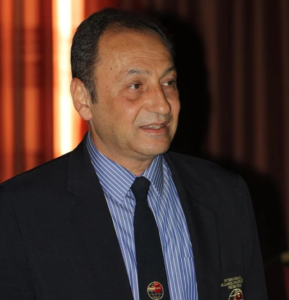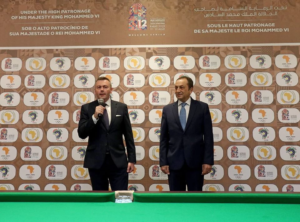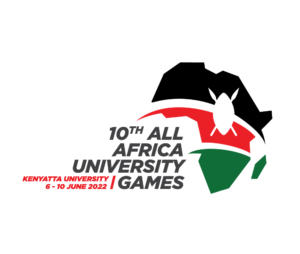Mohamed El-Kammah: Getting African snooker a seat at the table

How do you sell a sport?
As sport becomes more and more commercial and global, this is a question every sport is asking now.
However, it is a question snooker has been concerned with for years.
Its decline, at least in Britain, from its golden-years in the 1980s and 90s, has meant the sport is very aware of its existence.
The rise of snooker in China has eased fears, but the desire to spread the sport around the world has not gone away.
In Africa, this is being led by Mohamed El-Kammah, president of the African Billiards and Snooker Confederation.

A life consumed by snooker
El-Kammah has been involved in snooker, first as a player then as an administrator, for over 30 years. He seeks to promote the sport at every opportunity, something I found out for myself.
Upon learning of my Ethiopian heritage, El-Kammah complained about the lack of a national snooker federation in the country, and encouraged me to get involved in starting the process.
It makes sense for El-Kammah to use every moment he can. After all, one of the ABSC’s most recent successes came from a five-minute speech.
After writing to the African University Sports Federation, El-Kammah was invited to the AGM, and was given five minutes to state his case for snooker. He told me:
‘Some don’t think that snooker is a sport, they don’t consider it like a sport, so we explained to people that actually if you do a best of 9 [frames] you’ll be very tired after it.’
‘You walk approximately four kilometres during a best of 9.’
Five minutes was clearly enough, with snooker a part of the African University Games next June.

Even during the peak of his playing career, when he reached the main draw of the 1991 World Masters, El-Kammah was still thinking of how he could use this to improve conditions back home in Egypt.
Describing his experience of the World Masters, he told me:
‘It was fantastic. I took pictures of everything. I came back to my country and said, “look, this is how it looks like”.
‘There were 32 match tables, 11 practice tables. When there was a tournament [in Egypt] we used four tables.’
El-Kammah’s snooker beginnings is not an unusual story. He started playing because of his friends, and he found that he liked the sport.
He also found that he had the ability too. There was a tournament at his club, and El-Kammah came third.
He would not be third for long, winning at both city and national level to earn an invitation to the professional tour.
El-Kammah reached the last 64 of the World Masters, before losing to Tony ‘The Cat’ Meo.
While his story is not unusual in snooker, the fact that he did it in Cairo is.
The 2021/22 season will see no African players on the World Snooker Tour. The previous three seasons only featured two.
The obstacles in the ABSC’s way
When asked about the biggest obstacles to the development of African professional snooker, El-Kammah highlights the lack of infrastructure in Africa for the sport, but he does not think that this can simply be solved by throwing money at the problem.
For El-Kammah, the infrastructure has to come from passionate individuals from a grassroots level. He explains:
‘The biggest obstacle is that there has to be someone who cares about the sport and establish a federation, supervised by the ministry of sport, or the Olympic committee, to join the African Federation, the world federation. Then you will find players interested to play.’
El-Kammah’s post-playing career in snooker embodies this perfectly. His rise in the administrative side of the sport reflects his playing one.
Starting as the secretary of Cairo’s snooker federation, he rose through the ranks in the Egyptian and African federations before becoming ABSC president in 2006.
For this role, El-Kammah tells me how travels all over Africa with a mission to ‘meet the [national] ministries of sport, and convince them to establish a federation’.
The ABSC now has 19 countries as members, from Morocco to Mauritius. Alongside getting into the University Games, snooker was part of the African Games for the first time in 2019.

Gaining entry into the African Games is still a source of pride for El-Kammah.
‘There’s 65 African [sporting] federations, only 28 of them are in the African Games. Snooker was one of those 28 sports.’
It has been acknowledged internationally too. Amine Amiri was invited to the 2019/20 tour on the back of winning the men’s tournament.
Basem Eltahhan, the other African to have made the tour recently, was awarded a place after winning the ABSC-organised African Championship, further underlining the ABSC’s importance to African snooker.
However, El-Kammah acknowledges the financial disadvantages that African snooker players face in becoming professional. On the tour Amiri and Eltahhan have only won one match each.
Impact of COVID
COVID-19 has exacerbated these problems. An African Championship this year was postponed, and the pandemic’s impact still lingers.
‘You have to understand [that] in Africa only 5% of the population is vaccinated, so you cannot organise a tournament like in Europe, where the majority of citizens are vaccinated.’
This shapes the ABSC’s approach. When negotiating with countries to host tournaments, El-Kammah argues that the return of sport will lead to other benefits.
It is why he wants Mauritius to host the next African Championship, scheduled for early next year.
‘It would be good for the sport to go to Mauritius, it is a beautiful island. They also suffered [from the pandemic] like any other country, but lack of tourism [hits them harder].
‘It’s a tourist country, so not having any tourists is a disaster for the travel agents, for the restaurants, for everyone.
‘This is how we work, and why we go to different special countries, to spread the sport.’
With the African Championships and the University Games next year being followed by the 2023 African Games, there will hopefully be more opportunities for African snooker players to enter the tour.
Knowing what Mohamed El-Kammah can do for African snooker in five minutes, I look forward to seeing what he can do with it in five years.